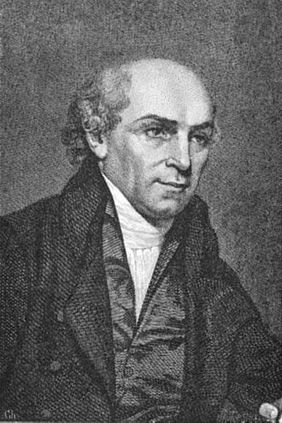
At the age of 14, Carey was apprenticed to a shoemaker and began to be influenced by a fellow apprentice who was a religious Dissenter. Through this influence Carey eventually left the Church of England and joined a Congregational church. In 1781 he married, and in the following years he taught himself Greek, Hebrew, Italian, Dutch, and French in his spare time and, it is said, while he was working on shoes.
Carey also became involved with a local Baptist congregation, and in 1783 he was baptized and began to preach in this congregation. In 1789 he became the full-time pastor of a Baptist church. In 1792 he founded the Baptist Missionary Society and also published what would become a revolutionary missionary manifesto: An Enquiry into the Obligations of Christians to use Means for the Conversion of the Heathens. This book scripturally justified missionary activity and was responsible for overcoming much of the resistance toward it that was common at the time.
The following year Carey committed himself to missionary work in India; he and his wife arrived in Calcutta in November 1793. In the next six years Carey worked full-time to support himself and his family, during which time he learned Bengali and translated the New Testament into that language. But life was far from easy. His son Peter died of dysentery, and his wife Dorothy suffered a nervous breakdown from which she never fully recovered.
Carey’s personal situation was difficult at every turn, and he wrote “This is indeed the valley of the shadow of death to me. But I rejoice that I am here notwithstanding; and God is here.” His work was also often hindered by the British East India Company which was still hostile to missionaries, and in 1800 Carey moved his family to the Danish colony of Serampore.
In fact, it took seven years of labor before Carey saw the first conversion as a result of his work, but it was a significant conversion. In 1802, the daughter of that first convert married someone outside her social caste, and the wedding was a demonstration that Christianity rejected the castes that divided India.
Carey’s work now began to thrive. Over the next 20 years he translated the Bible into dozens of major Indian languages and dialects and also founded a college – the first in Serampore – to train indigenous ministers. He also influenced the Governor-General of India to begin to put a stop to the infant sacrifice and the forced suicide of widows that were common practices in Indian society.
When he died in 1834, Carey had suffered much, but he died peacefully. He had persevered through faith, and tremendous things had been accomplished through his service as a minister, Bible translator, social activist, and, as is often said, as the modern-day father of missions.
 RSS Feed
RSS Feed
